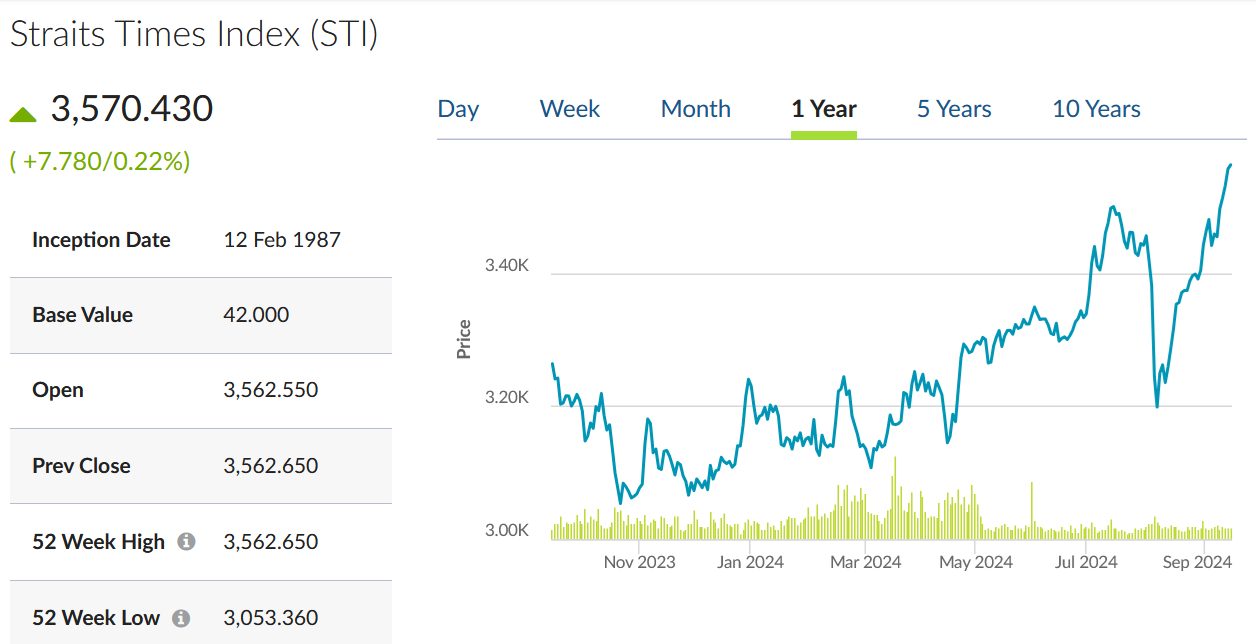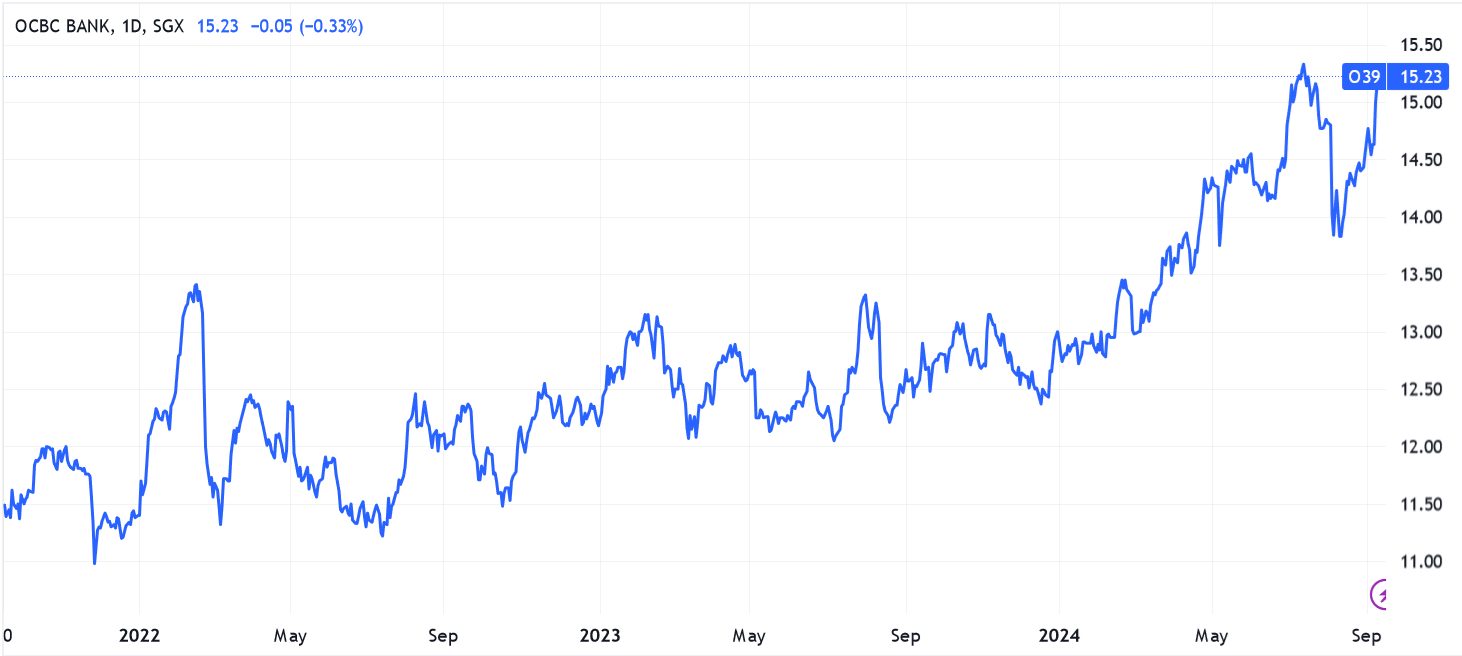Day Trading in Singapore



Singapore’s high-power economy and strong trade links make it a natural home to a booming financial services industry. The Asian country hosts a large band of day traders, who are also attracted by its favorable tax rules.
Find out how to start day trading in Singapore. This guide for beginners looks at the securities that can be bought and sold, and what a short-term trade might look like on the Singapore Exchange (SGX). We also reveal how markets are regulated and unpack Singapore’s low-tax environment.
Quick Introduction
- Day traders in Singapore have access to a variety of instruments, from stocks on the Singapore Exchange (SGX) to commodities, cryptocurrency and derivatives. Forex trading in Singapore is also huge, providing access to SGD currency pairs like USD/SGD.
- The Monetary Authority of Singapore (MAS) is responsible for regulating Singapore’s financial markets, extending to day trading activities. The central bank is a ‘green tier’ body under DayTrading.com’s Regulation & Trust Rating.
- Singapore’s tax-friendly environment, overseen by the Inland Revenue Authority of Singapore (IRAS), makes it a great place for active traders. Capital gains tax doesn’t apply, while income tax of between 0% and 24% usually applies for professional traders.
Top 4 Brokers in Singapore
After extensive hands-on tests, these 4 platforms stand out from the crowd for day traders in Singapore:
Day Trading Platforms in Singapore
What Is Day Trading?
Day trading involves executing short-term trades to capitalize on tiny price shifts. Positions can last from just seconds to several hours, and the small-but-frequent profits can add up to larger gains by the end of the day.
Followers of this strategy typically operate when market volatility and liquidity are high. To maximize profits, traders often use funds lent to them by their broker. This is known as trading with leverage, and while it can significantly boost profits, it makes this high-risk strategy even more perilous by potentially increasing losses.
To avoid constantly monitoring the market, many active traders use automated risk management tools like ‘take profit’ and ‘stop loss’ orders to manage risks and lock in profits.
What Securities Can I Trade?
Singapore is a bustling marketplace for financial securities, and individuals can choose from a variety of domestic, regional and global instruments.
The Asian country is a vital trading venue for multiple asset classes. It’s the world’s third biggest forex trading venue, for instance, where dealers can exchange the Singapore dollar ($S, or SGD) against other currencies like the US dollar (USD/SGD).
CFD trading in Singapore is also the fourth largest market – giving investors access to a popular derivative used to speculate on rising and falling prices without owning the underlying asset.
Equity traders primarily do business on the Singapore Exchange (SGX), one of the largest share-dealing exchanges in Asia. Its flagship index is the Straits Times Index (STI), which tracks the performance of the SGX’s 30 biggest companies by market capitalization.

The STI comprises a raft of different sectors including banking, technology, real estate and agriculture. Major names here include financial services provider DBS Bank, video games publisher and developer Garena, and telecommunications specialist Singtel.
Trading usually takes place between 09:00 and 17:00 Singapore Time (SGT), with an hour break at midday.
As well as company shares, market participants can also trade indices, funds, derivatives, real estate investment trusts (REITs) and fixed income securities.
Is Day Trading Legal In Singapore?
Yes. Capital markets, and by extension short-term trading activities, are supervised by the Monetary Authority of Singapore (MAS), the country’s central bank. The organization also oversees banks, insurance companies, financial advisers, and payment service providers.
MAS was created in 1970, and its principal functions include “to maintain price stability conducive to sustainable growth of the economy” and “to foster a sound and reputable financial centre and to promote financial stability”.
Trading providers need to be licensed by the MAS to do business in the country. Handily, the regulator provides a database of approved firms.MAS penalises firms that breach Singapore’s legal and regulatory frameworks, and publishes a list of “Enforcement Actions“.
How Is Day Trading Taxed In Singapore?
The territory is popular with active traders thanks to its low tax environment.
However, your tax liability will depend on several factors, including the frequency and volume of your trades. Individuals are not required to pay capital gains tax, although day traders will typically pay income tax on their earnings if it’s their primary source of income.
Taxes are paid to the Inland Revenue Authority of Singapore (IRAS), which imposes income tax at the following progressive rates:
| Taxable Income | Tax Rate |
|---|---|
| S$0 to S$20,000 | 0% |
| S$20,000 to S$30,000 | 2% |
| S$30,000 to S$40,000 | 3.5% |
| S$40,000 to S$80,000 | 7% |
| S$80,000 to S$120,000 | 11.5% |
| S$120,000 to S$160,000 | 15% |
| S$160,000 to S$200,000 | 18% |
| S$200,000 to S$240,000 | 19% |
| S$240,000 to S$280,000 | 19.5% |
| S$280,000 to S$320,000 | 20% |
| S$320,000 to S$500,000 | 22% |
| S$500,000 to S$1,000,000 | 23% |
| S$1,000,000 plus | 24% |
Singapore’s tax year runs from 1 January to 31 December, and tax returns must be submitted by 15 April of the following year if a hard copy is submitted. The deadline is 18 April for electronic copies.
Getting Started
Aspiring Singaporean traders need to complete three tasks to begin dealing in financial markets:
- Pick a top day trading platform in Singapore. You have a lot of choice with both local and overseas trading providers, so be picky when it comes to execution speeds, trading costs, access to financial markets, how well the charting platform works, and the amount of leverage you want. Critically, check the broker you’re considering is licensed by the MAS, and/or by a reputable regulator in an overseas territory.
- Open an account. With your broker selected, open a trading account that will allow you to buy and sell assets. You’ll need to provide proof of identity and address at this stage, for example a copy of Singapore’s National Registration Identity Card (NRIC), and answer some personal questions along with more generic ones about your investing goals and experience.
- Deposit some funds. When your account is up and running, you can send over some cash so you can begin day trading. You can do this simply through a debit card or a bank transfer, and some brokers may also let you use the services of an online payment provider like Singapore’s GrabPay. Brokers with SGD accounts can streamline deposits and withdrawals for residents.
A Day Trade In Action
Let’s demonstrate what a short-term trade on the SGX might look like.
The Background
My plan is to trade shares in OCBC Bank, a major financial services company in Singapore. It’s the second-biggest stock by market cap on the STI, in fact, and enjoys excellent levels of liquidity. This means you can expect to enter and exit positions quickly and cheaply – ideal for day trading.
More specifically, my strategy is to buy shares in the bank just before Singapore’s Ministry of Trade and Industry (MTI) releases its latest advance GDP data.
After looking at recent economic data and studying analyst comments, I’m expecting growth of 2.7% for the last quarter, ahead of the 2.5% rise priced in by the market.
If I’m right, the share prices of domestic cyclical shares could rise. In the case of Singapore’s banks, stronger economic conditions usually lead to higher credit demand and lower loan impairments.
Technical analysis is an important part of many short-term trading strategies, too. So I study the charts to detect any patterns, trends and indicators that might also indicate where OCBC’s share price could go after MTI’s statement.
Technical analysis is essential in day trading because it delivers immediate, actionable insights.This enables you to make rapid decisions based on real-time price movements and trade volumes, which is crucial for seizing short-term opportunities.
The Trade
MTI is due to release those GDP numbers at 08:00 SGT. So I open my trading platform 10 minutes before and prepare to place my trade.
At this time, OCBC shares are trading at S$15.22 each. So I place a ‘take profit’ instruction at S$15.24 and a ‘stop loss’ order at S$15.21.
These devices help me manage risk by automatically closing my position if the OCBC share price either rises or falls to those pre-selected levels, whatever comes first.

Several minutes after keying my trades, MTI releases those GDP numbers. As I expected, they come in better than the market forecast, indicating growth of 2.7%.
OCBC’s share price moves higher in the aftermath, and after around an hour moves through S$15.24, closing my position and giving me a profit of 2 cents for each share I purchased.
Bottom Line
Singapore’s strict regulatory environment offers individuals the chance to trade financial markets with confidence. In fact, with residents also enjoying low levels of tax, the country offers big advantages to the modern-day trader.
However, individuals need to remember that short-term trading is high risk, and that you should only trade with Singapore dollars that you can afford to lose.
Furthermore, scammers still exist in Singapore’s highly regulated environment, so checking that the brokerage you select is licensed remains essential.
To get going, check out DayTrading.com’s choice of the top brokers for day trading in Singapore.
Recommended Reading
Article Sources
- Turnover of OTC foreign exchange instruments, by country – Bank for International Settlements (BIS)
- Singapore Exchange (SGX)
- Straits Times Index (STI) - SGX
- Trading Hours & Opening/Closing Routine - SGX
- Monetary Authority of Singapore (MAS)
- Inland Revenue Authority of Singapore (IRAS)
- Individual Income Tax rates – IRAS
- Tax in Singapore - HSBC
The writing and editorial team at DayTrading.com use credible sources to support their work. These include government agencies, white papers, research institutes, and engagement with industry professionals. Content is written free from bias and is fact-checked where appropriate. Learn more about why you can trust DayTrading.com



